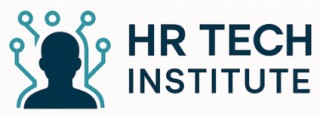Understanding the Technical Workplace Landscape
Shaping the Modern Technology Scene
The technical workplace has seen massive transformation, attributed to rapid advances in digital technologies. As companies embrace these changes, employees are required to navigate the evolving landscape that emphasizes the integration of digital workplace strategies and advanced management tools.
In fostering a competitive edge, businesses are investing significantly in data analysis, which helps in optimizing workflows and improving overall productivity. Managers and employers increasingly rely on workplace technology to facilitate seamless communication among team members, thereby enhancing technical communication. There's a growing emphasis on technical skills necessary for the modern job market, as well as softer skills like adaptation and collaboration, crucial for team synergy.
Moreover, as job roles become more specialized, companies are tasked with ensuring their technical workforce is equipped with relevant skills. Advanced HR tools have emerged to help maintain a balance between technical proficiency and effective employee experience. This highlights the indispensable role of technology in managing team dynamics, employee engagement, and data privacy.
The transformation of the technical workplace is relentless, driven by the need for real-time communication and efficient utilization of workplace technologies. As businesses continue to adapt to this digital shift, the challenge lies in adequately preparing their workforce to meet the demands of a technology-driven environment, maintaining a blend of skilled technical abilities and soft skills essential for success.
The Role of HR Tech in Enhancing Employee Experience
Enhancing Employee Satisfaction through HR Technology
Technology plays a crucial role in reshaping the employee experience within technical workplaces. The evolution of digital technologies has paved the way for advanced management systems that assist in creating a more satisfying and productive work environment. Here are some tangible benefits HR tech brings to the table:- Improved Communication: Workplace technologies such as collaboration tools and platforms enable real-time communication among team members, regardless of their physical location. This fosters better teamwork and ensures that technical communication is clear and efficient.
- Personalized Employee Engagement: Digital tools can offer personalized insights and feedback loops, helping employers tune into the needs of their team. This not only improves overall job satisfaction but also helps retain skilled technical workers who are often in high demand.
- Streamlined Processes: Technology in the workplace can automate repetitive tasks, freeing up time for employees to focus on more strategic work. This shift not only enhances productivity but also contributes to a more rewarding employee experience.
- Access to Data and Analytics: With data analysis at their fingertips, companies can make informed decisions that positively impact employee satisfaction. By understanding workforce trends and insights, businesses can tailor their strategies to meet employee needs effectively.
Bridging the Skills Gap with Innovative HR Solutions
Innovative HR Strategies for Bridging Skill Gaps
In today's rapidly evolving technology workplace, bridging the skills gap has become a significant concern for many companies. Technical skills are at the core of the technical workforce's strength, yet the rapid pace of digital technologies and workplace technology advancements means that not all employees can keep up to date with the necessary technical skills and soft skills. Employers and HR professionals are tasked with ensuring their teams are equipped with the right skill set to maintain competitiveness and drive business success. Utilizing innovative human resources solutions can be a game-changer for this challenge. Below are some strategies that companies can implement:- Personalized Learning Paths: Tailored learning experiences that align with individual and team needs can enhance skill development. By leveraging data analysis and digital tools, HR can offer targeted training and upskilling opportunities, ensuring employees are always ready to tackle new technology and technical communication challenges.
- Embrace Social Media for Learning: Platforms often provide interactive and real-time technical skills development. Encourage team members to engage with online communities and share insights, bolstering both their knowledge and the team's collective expertise.
- Collaborative Platforms: Workplace technologies that support team collaboration can improve technical communication and knowledge sharing among employees. Digital workplace tools encourage people work together seamlessly, regardless of their physical location.
- Regular Feedback and Coaching: Utilizing technology to gather data on employee skills and performance, management can provide timely feedback and coaching opportunities, fostering continuous improvement and engagement.
Data-Driven Decision Making in HR
Empowering HR Through Data Insights
The technology workplace is vastly evolving, and so is the need for HR leaders to embrace data-driven decision making. In this modern digital workplace, accessing and analyzing data effectively can provide unmatched insights into employee experiences and retention strategies. HR departments in technical fields are increasingly leveraging data to make informed decisions regarding their team members and overall workforce management. For instance, data analysis can reveal patterns in employee performance, preferences, and satisfaction, which empowers employers to tailor the workplace experience and meet individual needs more effectively. Moreover, utilizing workplace technologies allows businesses to track key performance indicators in real time. This empowers organizations to anticipate skills shortages, understand technical communication preferences, and support the development of soft skills necessary for success in a technical environment. However, alongside the advantages, data privacy concerns must not be overlooked. It's imperative for companies to ensure that employee data is handled with utmost transparency and security to build trust and enhance employee experiences. After all, achieving a balance between utilizing data for business growth and respecting data privacy is crucial for fostering a healthy and productive technical workplace. In the end, by integrating advanced digital technologies into their policies, HR departments can make better decisions that not only benefit the company but also elevate the employee experience, enhancing communication and management strategies for a thriving technical workforce.Adapting to Remote Work in Technical Fields
The Shift to Remote Work in Technical Industries
Remote work has been propelled to the forefront of workplace strategies, particularly within technical industries. This digital transformation is not only reshaping how people work but also how companies and management teams approach the concept of a job itself. With the aid of advanced digital workplace technologies, technical workers are no longer bound by the constraints of geography. This shift requires a re-examination of technical communication and collaboration. Employers must implement robust workplace technologies to help facilitate seamless communication and foster team spirit among dispersed team members. Skilled technical workers benefit from real-time data analysis tools that ensure project milestones are met efficiently, enhancing both the employee experience and overall business outcomes. Adapting to this digital work environment is not without its challenges. Companies must navigate issues surrounding data privacy and security to protect sensitive information from breaches. Moreover, they need to invest in upskilling initiatives to ensure their workforce is competent in handling digital technologies. The importance of technical skills cannot be overstated, but the rise of social media and digital communication platforms also underscores the need for employees to possess strong soft skills. Employers face the task of redesigning management structures to support remote employees effectively. While digital platforms facilitate virtual meetings and instant communication, they cannot entirely replace the nuanced interactions that occur in face-to-face meetings. As such, technical workplaces must strike a balance that preserves the richness of personal interactions while leveraging the convenience of digital tools. Ultimately, the shift to remote work in technical fields requires both businesses and their employees to remain agile. By embracing this evolution in the workplace, companies not only enhance their operational capabilities but also contribute to a more flexible, adaptable workforce prepared for the demands of the modern business landscape.Future Trends in HR Tech for Technical Workplaces
The Rise of AI and Automation
As companies continue to integrate automation and artificial intelligence, the landscape of technical workplaces is rapidly transforming. These technologies are reshaping how employees and employers interact, focusing on enhancing efficiency and streamlining operations. As a result, HR teams must adapt their strategies to manage this new paradigm effectively.
Emphasis on Employee Data Privacy
With the increased reliance on digital technologies in the workplace, safeguarding employee data privacy has become crucial. Organizations need to invest in robust data management systems and develop policies that protect employee information without compromising functionality. This focus on data privacy will only become more important as employers leverage data analysis to inform decision-making processes.
Enhancing Communication in a Digital Workplace
Communication tools that foster real-time interaction are pivotal in managing distributed teams. Apps and platforms designed for seamless technical communication help team members converse efficiently, leading to improved collaboration and productivity. As remote work continues to be prevalent, companies will prioritize solutions that bridge geographical gaps between their workers.
Advancing Technical Skills Training
To ensure their workforce remains competitive, companies will increase their investment in skill development programs. These initiatives should cover both technical skills and soft skills to help employees succeed in their roles. Moreover, HR teams should utilize workplace technologies to create personalized learning paths that cater to the unique needs of their team members.
Resistance to Technological Change
Not all employees will easily embrace new technologies. To counter this resistance, businesses must implement change management strategies that include effective communication, training, and support. By actively involving employees in the transition process, employers can create a more technology-friendly atmosphere.
The Future of HR Tech in Technical Workplaces
The future of HR tech will see further integration of digital workplace tools, enabling companies to refine their approaches to employee management. By leveraging advancements in technology, businesses will be able to enhance the employee experience, optimize their workflows, and build a more resilient, versatile technical workforce.







